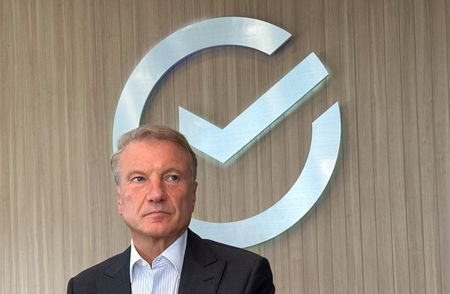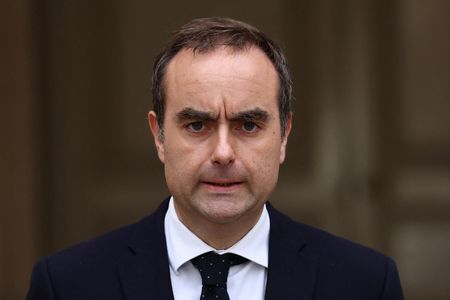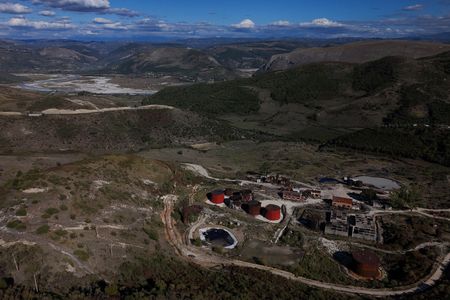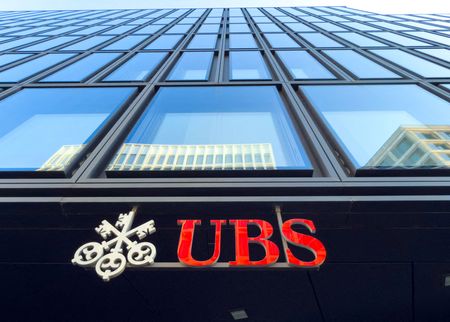By Elena Fabrichnaya
SOCHI, Russia (Reuters) -The Russian government’s proposal to increase value-added tax and eliminate some tax breaks in 2026 to balance the budget will lower bank profits by up to 9%, Sberbank’s CEO German Gref said on Wednesday.
The draft budget, under review in parliament, proposes raising VAT by two percentage points next year. The measure is expected to boost inflation as companies shift the burden to consumers.
“Next year these fiscal innovations will result in minus 277 billion roubles ($3.40 billion),” Gref said. The central bank is projecting banking sector profits of 3.2 trillion roubles to 3.8 trillion next year.
Sberbank’s Chief Financial Officer Taras Skvortsov later clarified that the elimination of tax breaks on some banking services, such as cards servicing or merchant payment processing services, will affect profits as well.
Russian banks have been posting record profits in recent years, partly because of an overheating economy geared towards sustaining what Russia calls a “special military operation” in Ukraine.
The record profits have triggered public criticism over banks’ excessive profiteering during wartime, at the expense of industrial sectors, including military enterprises.
Economic growth is expected to slow down sharply this year after the central bank raised interest rates to 21% a year ago to cool the economy and fight inflation. The slowdown is dragging down bank profits as well.
“This year, the banking sector will not earn last year’s profits, not even close,” Gref told reporters at a financial conference in the Black Sea resort of Sochi.
Despite the estimated drop in banks’ 2025 profits, Sberbank, Russia’s largest lender, is expecting to report a 6% to 7% increase, Skvortsov said.
Sberbank pays half of its profit as a dividend to the state. Its planned dividend payout for 2026 amounts to about 1% of the state budget’s revenues.
($1 = 81.5000 roubles)
(Writing by Gleb Bryanski; Editing by Richard Chang)











